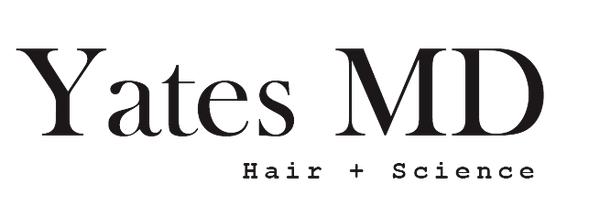Get hair, health, and science news delivered right to your inbox.
How often do we give thought to the relationship between what we eat and the health of our hair? Not frequently, right? Yet, diet plays a significant role in hair growth and the prevention of hair loss. Various factors like genetics, age, hormones, nutrient deficiencies, and stress can lead to hair loss. However, integrating certain foods into your diet can improve hair health and mitigate hair loss. This article will reveal some nutrient-rich foods for hair loss that you should consider.
The Link Between Diet and Hair Health
Hair primarily consists of a protein called keratin. Inadequate protein intake can weaken hair strands, making them prone to breakage and leading to hair loss. Similarly, deficiencies in specific vitamins and minerals can result in hair thinning or loss. Therefore, a balanced diet rich in essential nutrients can help maintain healthy hair and potentially curb hair loss.
Nutrient-Rich Foods for Hair Loss
- Eggs
Eggs are among the best foods for hair health. They're loaded with protein and biotin, two nutrients that encourage hair growth. A deficiency in either nutrient can lead to hair loss, making eggs an excellent choice for those aiming to enhance their hair health.
- Berries
Berries are abundant in healthful components and vitamins that could potentially stimulate hair growth. Notably, they are rich in vitamin C, a powerful antioxidant. These antioxidants can shield hair follicles from the detrimental effects of harmful particles known as free radicals, which are naturally present in our bodies and surroundings.
- Spinach
As for spinach, it's a nutrient-dense leafy green that's filled with advantageous nutrients such as folate, iron, and vitamins A and C. These nutrients aid in fostering hair growth. Specifically, Vitamin A stimulates the skin glands to generate sebum, an oily substance that hydrates the scalp and maintains the hair's health.
- Seeds
Seeds offer a massive amount of nutrients with relatively few calories. Many of these nutrients also promote hair growth, including vitamin E, zinc and selenium. A variety of seeds, including flaxseeds and chia seeds, also have omega-3 fatty acids which are known to contribute to hair health.
- Sweet Peppers
Sweet peppers are a remarkable reservoir of vitamin C, which can contribute to hair growth. Surprisingly, a single yellow pepper offers nearly 5.5 times the amount of vitamin C found in an orange. Vitamin C encourages the production of collagen, strengthening hair strands and reducing breakage.
- Oysters
Oysters are among the top dietary sources of zinc. This essential mineral underpins the cycle of hair growth and repair. A diet deficient in zinc could lead to telogen effluvium, a prevalent but reversible type of hair loss resulting from nutrient insufficiency.
- Shrimp
Shrimp, a favored shellfish, is packed with several nutrients that could potentially enhance hair growth. Notably, shrimp is an excellent provider of protein, B vitamins, zinc, iron, and vitamin D. A serving of shrimp weighing 3.5 ounces (100 grams) fulfills 38% of your daily vitamin D requirement.
- Beans
Beans serve as a wonderful plant-based protein source, crucial for hair growth. Similar to oysters, beans are rich in zinc, which supports the cycle of hair growth and repair. A 3.5-ounce (100-gram) helping of black beans covers 7% of your daily zinc requirements.
- Soybeans
Research indicates that certain compounds present in soybeans could potentially stimulate hair growth. Spermidine, a compound found in abundance in soybeans, is one such example.
- Meat
Many people include meat as a mainstay in their diet due to its richness in nutrients that could support hair growth. The protein found in meat contributes to growth and fortifies hair follicles while aiding in their repair.
Incorporating these nutrient-rich foods into your diet can be a natural way to combat hair loss. However, it's important to remember that diet alone may not be enough to completely solve hair loss problems. It's crucial to get a proper diagnosis and understand the underlying cause of hair loss.
Supplements to Enhance Your Diet
While the focus should always be on consuming a nutrient-rich diet, some people may find it helpful to supplement their diet to ensure they're getting enough vital nutrients for hair health.
- Biotin
Biotin is one of the most popular supplements used for hair growth. It's a B vitamin that helps convert certain nutrients into energy and improves your body's keratin infrastructure.
- Vitamin D
A deficiency in vitamin D is associated with alopecia, which is the medical terminology for hair loss. Getting adequate sunlight is the best way to help your body produce more Vitamin D. However, if you live in a place where sunshine is scarce, supplements can help.
- Vitamin E
Much like vitamin C, vitamin E acts as an antioxidant capable of combating oxidative stress, thereby encouraging hair growth. According to a particular study, individuals suffering from hair loss witnessed a 34.5% increase in hair growth after consuming a vitamin E supplement over a period of eight months.
- Iron
Iron deficiency hair loss is common in women. Iron is an essential mineral that helps red blood cells carry oxygen to your cells, which aids in metabolism and growth. Iron also promotes hair growth.
- Zinc
Zinc is crucial for the growth and repair of hair tissue, and it ensures the optimal functioning of the oil glands surrounding the follicles. A prevalent symptom of zinc deficiency is hair loss.
- Protein
Hair is almost entirely made of protein. Consuming enough is important for hair growth. If you're not getting enough through your diet, a supplement might be helpful.
Remember, before starting any supplement regimen, you should consult with a healthcare provider. They can provide guidance based on your individual dietary needs and hair health goals.
The Role of Professional Hair Loss Treatment
While nutrient-rich foods for hair loss can significantly improve your hair health, they may not be enough, particularly if you're experiencing severe hair loss. In such cases, professional treatment might be the most effective solution.
At Dr. William Yates, Hair Restoration, we offer a range of treatments that combine natural remedies and the latest scientific advancements in hair loss treatment. Our team of professionals is ready to collaborate with you to devise a tailor-made treatment strategy that caters to your unique requirements, ensuring optimal outcomes.
Discover more about our offerings to rejuvenate your hair and restore your self-assurance by visiting our website or reaching out to us today.
The Bottom Line: Consider These Foods for Hair Loss
Consuming a well-rounded diet packed with essential nutrients can stimulate hair growth, particularly if your hair loss is a result of inadequate nutrition. However, the foods you eat and the supplements you take are just one piece of the puzzle.
It's also important to stay hydrated, get plenty of sleep, and reduce stress as much as possible. Like a well-tended garden, your hair needs to be nurtured to grow healthily.


